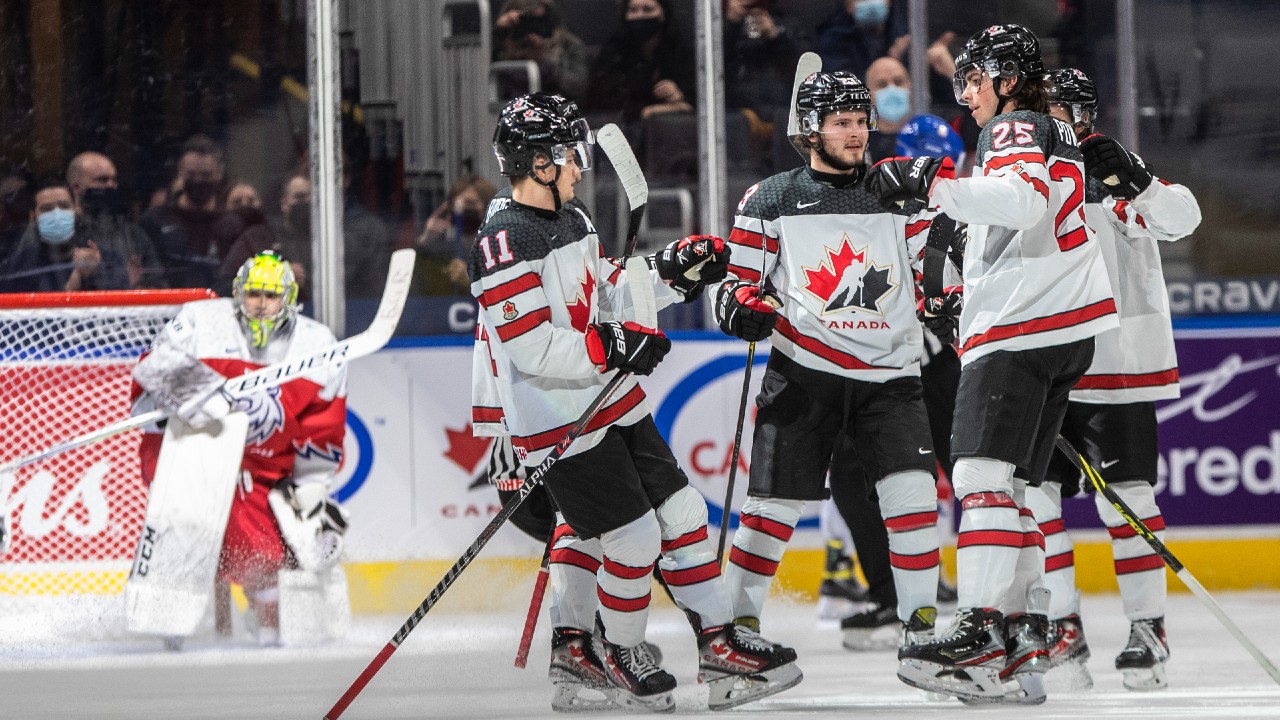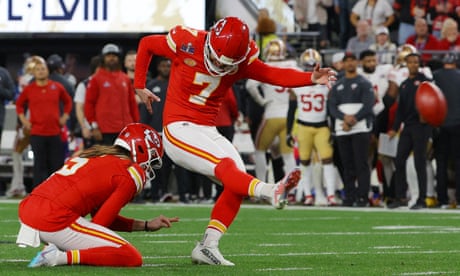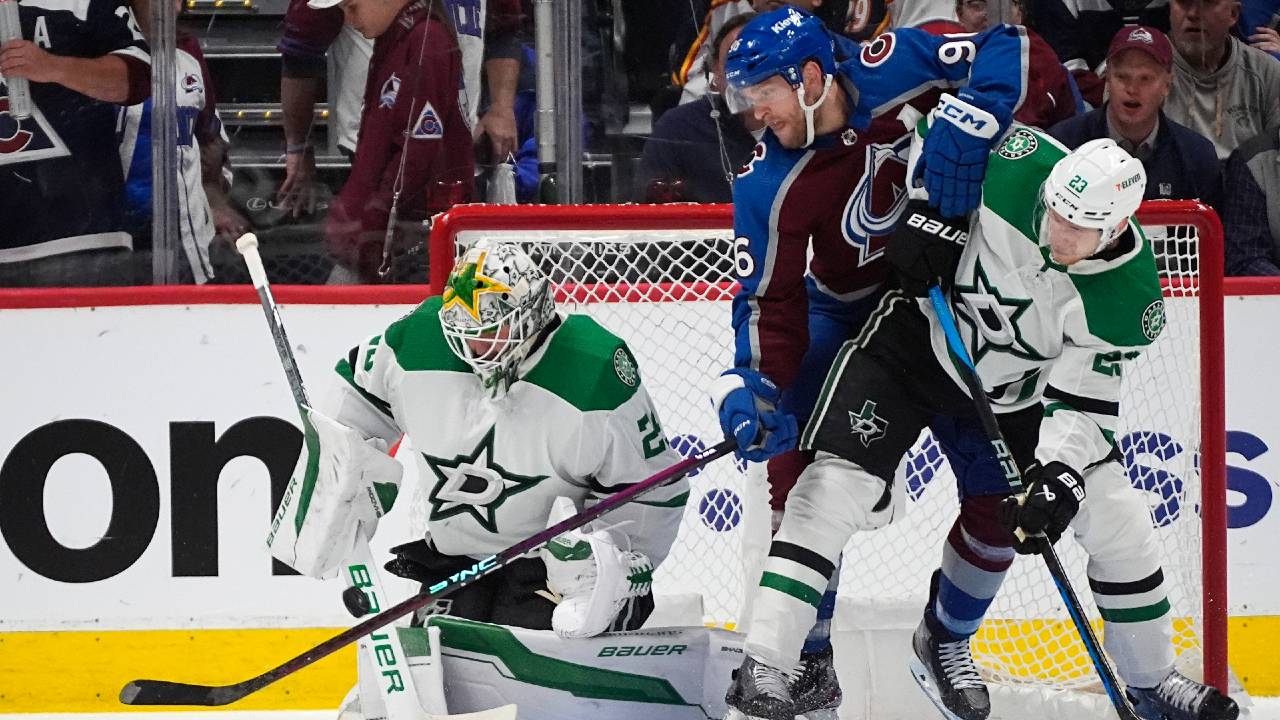
EDMONTON — There is something about a defenceman like Owen Power that makes hockey people drool. Something that screams pillar, or building block. A player on which an entire franchise can be balanced. One that even the Buffalo Sabres can’t screw up.
A great young World Junior goalie? We’ve seen scads of them star here at the WJC, but then fail to pan out at the next level. For every Roberto Luongo there are two or three Jeff Glass’, for every Carey Price a Zach Fucale and a Justin Pogge.
An elite forward like Mason McTavish? Hey, don’t get me wrong. The Anaheim Ducks aren’t complaining about adding this year’s phenom forward at the WJC to a team also featuring Trevor Zegras, who was the same thing here a year ago.
Power, however, is different. Defencemen are different.
The world in which Power does not become a 1,000-game, 25-minute defenceman in the NHL is, frankly, nonexistent right now.
He is Chris Pronger. He is Alex Pietrangelo.
He is the rare No. 1 defenceman who will one day dictate the pace of NHL games the way Larry Robinson once did, or Brad Park.
Owen Power’s hat trick leads #TeamCanada to a 6-3 victory over Czechia in their opening game at the #WorldJuniors
Next game: Tuesday at 7:00 p.m. ET vs. Austria pic.twitter.com/enD5U1G7mF
— Team Canada (@TeamCanada) December 27, 2021
“The passing, the skating, the shooting, it speaks for itself. It’s elite,” said Team Canada head coach Dave Cameron, after Power became the first Canadian defenceman ever to notch a World Junior hat trick in a 6-3 win over Czechia. “But it’s his calmness. The whole balance that he brings. He’s able to keep that even keel, and he’s done it at the Worlds, he’s done it at Michigan, and he’s done it now here at the World Juniors.
“The ability to play that high performance game, with a calmness. I’m not sure you can teach that.”
Teach?
The combination of Power’s assets are not described in any text book, or mapped out in any coaching drills.
Can you teach six-foot-five and 214 pounds? Can you teach a stride like Darnell Nurse, or puck-handling with the aplomb of a 750-game NHL veteran? In Power’s first game at the World Juniors, he scored three times, had six shots on goal and played 21:48, all game highs.
Think of all the great defencemen who have pulled a Team Canada sweater over their heads at this tournament, from Shea Weber to Scott Niedermayer, from Larry Murphy to Duncan Keith. None have authored a hat trick in this tournament, and Power did it in his first game.
Owen Power! HAT TRICK pic.twitter.com/640sJQuc30
— Michigan Hockey (@umichhockey) December 27, 2021
“I was pretty surprised. There has been a ton of pretty good players come and play in these tournaments. I had no idea that no one had got a hat trick,” he said after the game. “It’s the first hat trick I’ve ever had. To do it on this stage and wearing a Canadian jersey is pretty special.”
This will be Power’s last season at the University of Michigan, before joining a team in Buffalo that has had as many swings at the proverbial “first overall draft” plate as the club that calls Rogers Place home. He may detour through Beijing however — it’s hard to imagine a collection of non-NHL Canadian players among whom the 19-year-old Power would not be their best blue-liner.
“He came as advertised. His poise with the puck, he has a real low panic threshold. He can protect pucks…” began Cameron. “To be compared to Chris Pronger, Chris had that mean streak. I don’t see Owen getting to that level. I coached against, and had Pietrangelo on a World Junior team, and I see a lot of similarities there. That ability to escape under pressure.”
Speaking of which, this was as close as Canada has come to having to escape from a serious test by Czechia in a long while, forcing Cameron to use an early timeout when Czechia went ahead 3-1 just 12:23 into the game.
Oooooh…
Getting interesting here in Edmonton, as the Czechs go up 3-1 and Canada calling a time out.
Canada not used to being challenged like this by Czechs. Will make for a much better game.— Mark Spector (@SportsnetSpec) December 27, 2021
Canada had not trailed for a single second at last year’s World Juniors until the gold-medal game. In Game 1 this season, the Czechs scored three times in a single period against the Canadians, the first time in WJC history for Czechia.
“That timeout was huge,” Power said. “It settled us down, and we just did a better job at keeping guys in front of us. Not trying to force anything and cheat for offence.”
Cameron is a veteran of these things — this is his fourth tournament behind a Canadian bench as either an assistant or head coach.
“One of the things we discussed all week as a coaching staff was, we didn’t know what the hell to expect in the first 10 minutes,” he said. “We’d played one game, they had not played any. We knew it would be a bit of an adventure. Junior hockey at its finest.”
The good news? Often times, the first adversity Canada faces doesn’t come until the medal round — when failure to overcome means going home, sometimes empty-handed. This was a nice little bump in the road, unexpected but not unwelcome by Cameron and his staff.
“It’s always great to have adversity when you win the hockey game,” the coach said. “This is my fourth World Juniors, and the thing I’ve learned is, expect the unexpected. It never goes the way you draw it up. It’s your team’s ability to be able to adapt.
“The adversity was good, because we won. Hopefully we can learn and grow from that.”




